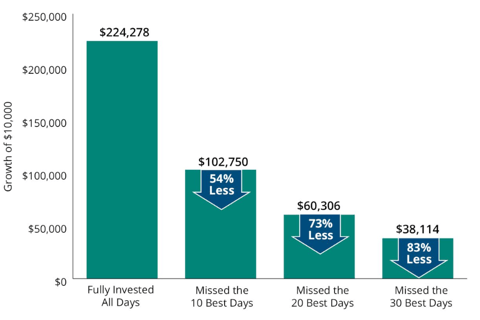Mutual Funds 101: Investing with Confidence
Let us convince you to take the boring but sensible route in investing your savings
Jibran


Let me paint a picture for you. Aurangzeb, in his last year of university, has been following the news of the remarkable gains in the stock market. He is suffering from the classic case of FOMO after hearing about the 15% monthly profit enjoyed by his best friend, after investing in his favourite stock. He finally decides to open up a brokerage account and start trading, using tips from a WhatsApp group, which claimed to have insider information about various stocks. What happened to him next is what happens to over 90% of first-time retail investors worldwide.
Aurangzeb was planning to buy a car before his graduation. After his recent escapades in stocks, he now has to work part-time at a near-by restaurant, to pay for his tuition fees. Let's delve deep into what went wrong for Aurangzeb and what he should do now, enabling him to purchase that Honda Civic to drive to his graduation party.
There is empirical evidence to suggest that investing in the stock market can be a rewarding journey towards building wealth. However, for most retail investors, navigating the complexities of direct stock trading can be fraught with risks. All good things reveal themselves with time and care. So, rather than playing with fire from the get-go, let us discuss how we can initiate our investing journey in a more mature manner.
This is where mutual funds often emerge as a superior starting point. To be successful in stock trading, one must be confident that they have both the time and expertise to make informed decisions. Missing one of these attributes is often a recipe for disaster.
Why Most Retail Investors Lose Money in Stock Trading
Direct stock trading requires significant research, analytical skills, and emotional discipline. Retail investors often fall prey to common pitfalls that lead to losses:
Lack of Knowledge and Research: Many new investors jump into the market without understanding company fundamentals, industry trends, or economic indicators. They might rely on tips, rumors, or social media trends, which can be highly misleading.
Emotional Decision-Making: Fear and greed are powerful emotions that can significantly impact the stock market. Panic selling during downturns or chasing hot stocks at inflated prices are common behaviors that erode capital.
Insufficient Diversification: A common mistake is putting all capital into a few stocks. If one of these companies underperforms, the entire portfolio can suffer significant losses.
Timing the Market: The allure of buying low and selling high often leads to futile attempts at timing market fluctuations. This is notoriously difficult, even for seasoned professionals, and often results in missing out on market upturns or locking in losses.
High Transaction Costs (for active trading): Frequent buying and selling of individual stocks can incur substantial brokerage fees and taxes, eating into potential profits.
The Case for Mutual Funds
Mutual funds offer a professionally managed, diversified, and accessible way to invest in the stock market, making them ideal for beginners like Aurangzeb.
What is a Mutual Fund?
A mutual fund pools money from multiple investors to invest in a diversified portfolio of securities, managed by professional fund managers. When you invest in a mutual fund, you buy "units" of the fund. There are various kinds of mutual finds, including the following.
Equity Fund (invests in stocks)
Income Fund (invests in bonds or sukuks)
Balanced Fund (mix of stocks and bonds)
Money Market Fund (short-term low-risk instruments)
Today, we will be discussing solely equity funds to offer a comparison with stock investing and / or trading.
Benefits of Mutual Funds for Beginners:
Professional Management: Fund managers are experienced professionals who conduct in-depth research, analyze market trends, and make informed investment decisions on behalf of the investors. This eliminates the need for individual investors to possess extensive financial knowledge or spend hours researching companies.
Diversification: Mutual funds inherently offer diversification by investing in a basket of securities across various sectors and asset classes. This spreads risk, meaning that the poor performance of one stock or sector is offset by the good performance of others. This is crucial for mitigating the impact of market volatility.
Affordability: You can start investing in mutual funds with relatively small amounts, making it accessible to a broader range of investors.
Liquidity: Open-end mutual funds allow investors to buy or sell units on any business day, providing great liquidity.
Convenience: Investing in mutual funds is relatively straightforward, often involving signing up with an Asset Management Company (AMC) and making regular contributions. Many AMCs offer online platforms for easy access and management of funds.
Regulation: Mutual funds are regulated by the country's respective governing bodies, which provides a layer of oversight and investor protection.
What to Look for in a Mutual Fund:
When choosing a mutual fund, be sure to consider these nine key factors:
Investment Objective and Risk Profile:
Are you saving for retirement (long-term growth) or a down payment on a house (medium-term, moderate risk)? Equity funds are generally considered high-risk, high-return investments. Your personal risk tolerance is of paramount importance in choosing the right fund.
Fund Manager's Track Record and AMC's Reputation:
Look for AMCs with a strong reputation and a proven track record of good governance. While past performance is not indicative of future results, a consistent track record of the fund manager and the AMC can be a good indicator of their expertise.
Expense Ratio (Fees):
This represents the annual percentage of your investment that is allocated towards covering the fund's operating expenses, management fees, and other related costs. A lower expense ratio means more of your money is working for you. Most importantly, be aware of any entry (front-end load) or exit (back-end load) charges.
Historical Performance:
While past performance is not a guarantee, it offers insight into how the fund has performed across various market cycles. Compare the fund's returns against its benchmark index and other funds in the same category over 1, 3, 5, and 10 years. Look for consistency rather than just one-off stellar years.
Fund Size (Assets Under Management - AUM):
A larger AUM can project investor confidence and economies of scale.
Diversification within the Fund:
Even within a mutual fund, ensure it's adequately diversified across various companies and sectors to minimize specific risks.
Investment Horizon:
Match the fund's recommended investment horizon with your own. Equity funds are generally suitable for long-term horizons (five years or more).
Fund Ratings
Check the credit ratings of the AMC and the Fund to assess their creditworthiness and ability to honor redemptions, even during times of crisis.
Investment Committee
This committee is responsible for deciding where our hard-earned savings will be invested. Naturally, having knowledge about them makes perfect sense. Repeated changes in personnel are not a good sign, since stability is the primary reason we invest in mutual funds.
Best Practices for Investing in Mutual Funds – Making use of SIP and Compounding
Albert Einstein famously referred to compounding as "the eighth wonder of the world”. The power of compounding is a unique tool that can transform a small, systematic investment plan (SIP) into a significant corpus. Yields from the underlying investment are reinvested, which allows investments to grow exponentially over time. The additional gains from compounding may seem modest at first, but over time they shall snowball.
Let us consider an example to understand the growth potential here. If you undertake SIP by investing only Rs 5,000 monthly, in a fund bearing a modest 15% annualized return, here’s how your wealth will grow over time:
5 years: Rs. 3 lakhs invested, grows to Rs. 4.5 lakhs
10 years: Rs 6 lakhs invested, grows to Rs. 14 lakhs
20 years: Rs 12 lakhs invested, grows to Rs 76 lakhs
It is imperative to ensure that we have "time in the market" rather than trying to "time the market". While tempting, trying to buy at the lowest price and sell at the highest is nearly impossible to do consistently—even for professionals. Staying invested, regardless of all the noise, is proven to be almost always more successful. Over time, markets tend to rise despite short-term volatility.
History has taught us that missing out on the best few days in the market over a few years can substantially dent returns. As per studies conducted by the Hartford Funds, in the US stock market, if you missed the Wall Street's 10 best days over the past 30 years, your returns would have been cut in half. Missing the best 30 days would have reduced your returns by an astonishing 83%.
S&P 500 Index Average Annual Total Returns: 1995–2024
Data Sources: Ned Davis Research, Morningstar, and Hartford Funds
Conclusion: Start Smart, Stay Consistent
Investing in the stock market can be a powerful tool to grow wealth—but only when done wisely. It can be safely deduced that most beginners are better off starting their investing with mutual funds, learning how markets work, and allowing compounding and time to work their magic. Attempting to trade stocks without experience is like sailing into a storm without a compass. Mutual Funds, therefore, form an excellent stepping stone to the journey toward managing one's own stock portfolio.
A long-term perspective is an investor's strongest ally in building wealth through investing. The most successful investors focus on discipline and patience—not stock tips or quick profits. Time for Aurangzeb to turn over a new leaf and get it right this time. With the right approach, that elusive Honda Civic will be his soon.
"The stock market is a device for transferring money from the impatient to the patient." — Warren Buffett.


